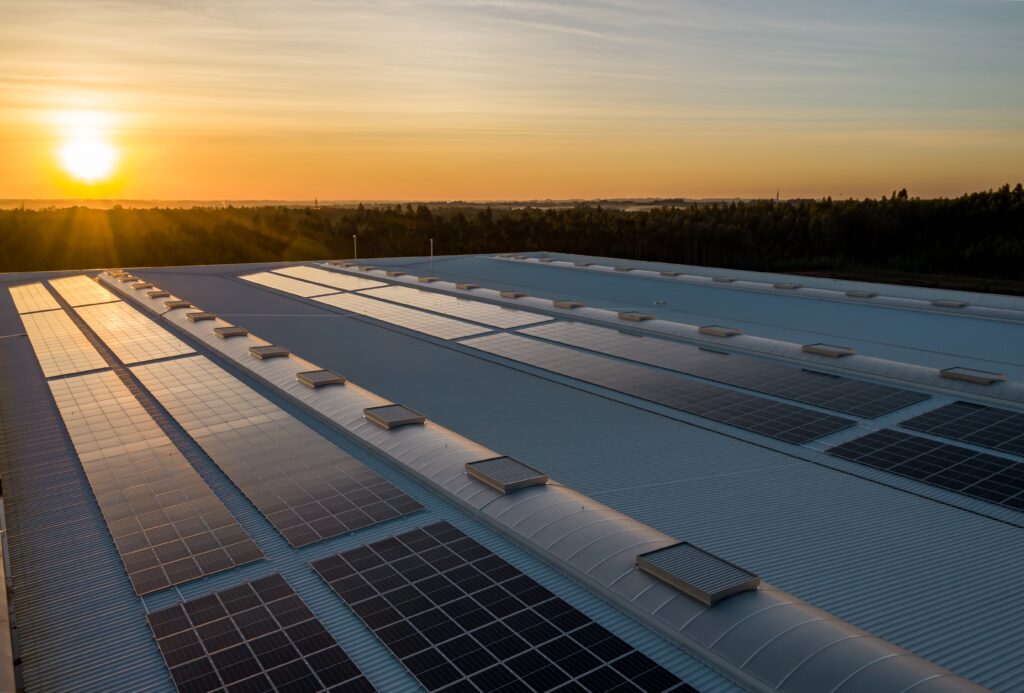
A bit of common sense is required when converting to solar energy products.
Photovoltaic (PV) or solar cells convert sunlight into electricity. When light strikes the semiconductor material of a solar cell, it releases electrons that generate electric current.
A solar panel or PV panel is a frame with several connected solar cells. The more solar panels are connected together, the more electricity is produced.
Solar panels produce direct current (DC), not alternating current (AC) electricity. The voltage is also low, [for smaller domestic installations] and being DC, it is impossible for the solar panels which charge the batteries to create dirty electricity or harmful electric and magnetic fields.
In other words, the electrical power from the panels is low voltage (DC) and is not problematic.
The charged batteries power the inverter, which changes the current from low voltage DC to the 230v AC required in order to power the lighting and power circuits. This is where problems could occur.
The inverter should preferably be a pure sine wave inverter to match the requirement for the household appliances that are designed to operate on a pure sine wave ( the same pure sine wave as is generated by the power utility).
Non sine wave inverters have been found to give high readings on dirty electricity meters and sometimes these readings cannot be reduced by the conventional methods.
Claims of “pure sine wave” inverters might not be correct and technical advice may be required,
Needless to say that solar panels must be installed properly by a qualified professional to ensure for example that earthing has been done properly.
The electric and magnetic fields created by an inverter fall off very quickly with distance. Regardless, inverters should not be placed in areas where one spends time, or where a bed is located on the other side of the wall to the inverter.
This topic was included in EMFSA’s comments on the Parliamentary Portfolio Committee on Environment, Forestry and Fisheries; Climate Change Bill tabled in Parliament in February 2022:
“The bill should make strong provision for regulation of renewable energy products, for instance as EMFSA we have encountered some products that are advertised as generating a “pure sine wave” when in our opinion, it does not.”
